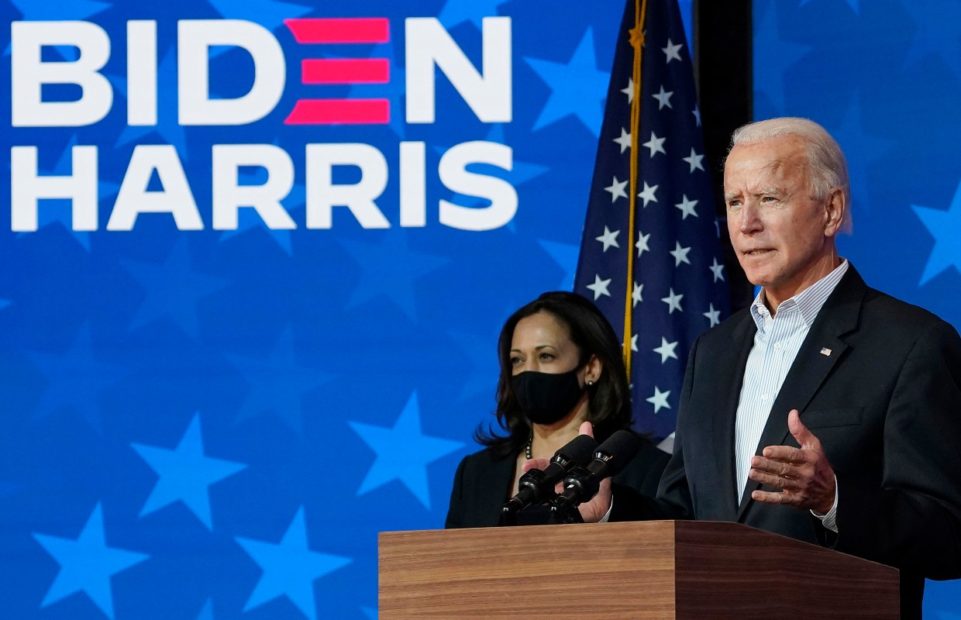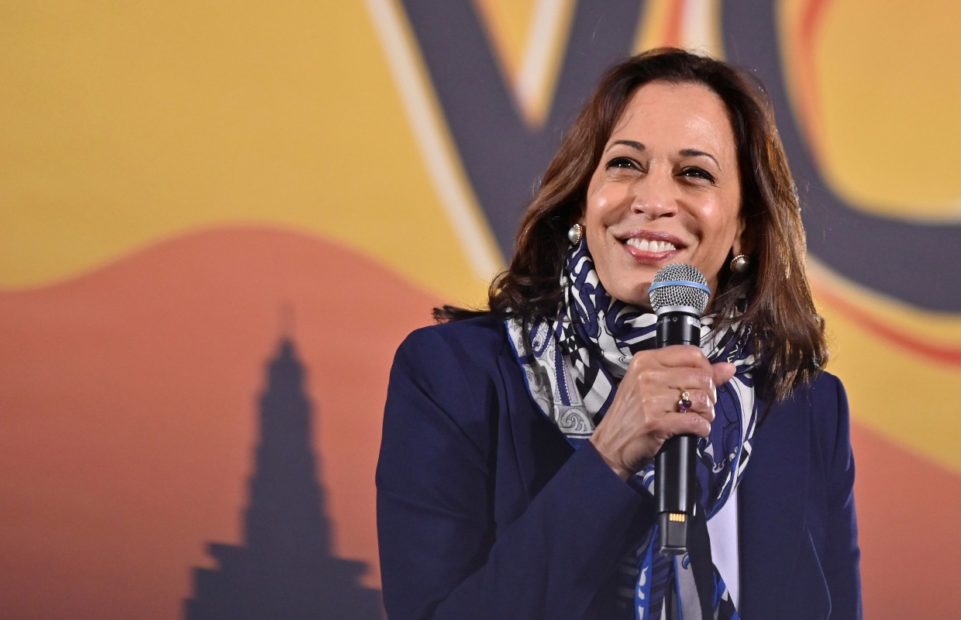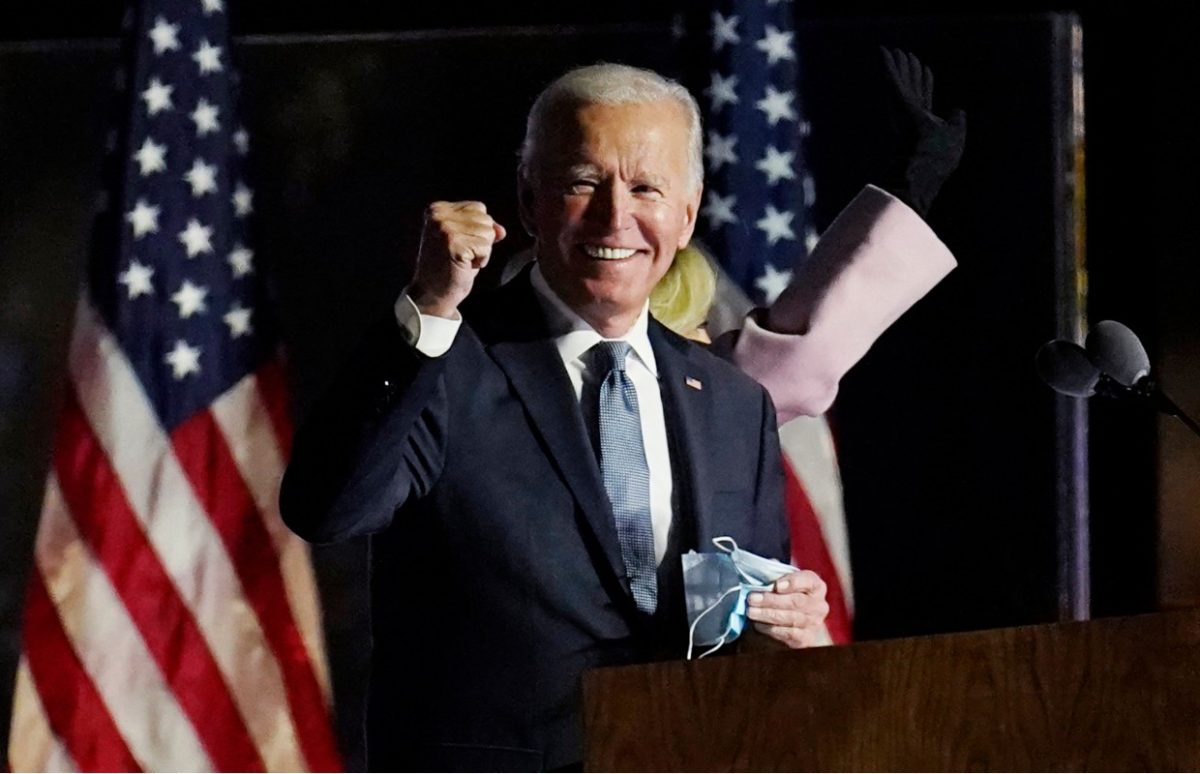After four days of tense waiting, demonstrations and threats of legal challenge, Joe Biden and Kamala Harris emerged as the next President and Vice-President of the United States on Saturday 7 November.
In the absence of a national election body, it was the media organisation Associated Press which called wins for the Democratic ticket in Pennsylvania and Nevada, taking Biden-Harris to 290 electoral-college votes, 20 more than the 270 needed. President Trump's campaign still refuses to accept defeat, and intends to continue launching legal contests to individual states' elections.
Voter turnout in the highly contested election has been estimated at 67%: the highest since 1900, despite restrictions because of coronavirus.
The tone of Saturday's victory speeches was of appeasement and unity. In his long Senate career, Biden became well known for "reaching across the aisle", and seeking to work with all parties to find consensus.

As Kamala Harris introduced President Elect Biden in his stronghold, Wilmington, Delaware, she said, "Joe is a healer. A uniter. A tested and steady hand."
Citing the Constitution, he called it, "A victory for 'We the People.'" And continued, "To make progress, we must stop treating our opponents as our enemy. We are not enemies. We are Americans." You can read his entire speech on the campaign website, where this video declares the ticket's intention to be include all Americans, in their diversity of ethnicity, gender, origins, sexual orientation or abilities.
A Historic First
The Democratic Party tried to elect the first ever woman president four years ago. This year, Kamala Harris will become the first woman vice-president. As the daughter of Jamaican and Indian immigrants, she will also be the first representative of those groups to hold the post. And she assured supporters on Saturday:
"While I may be the first woman in this office, I won't be the last.
Because every little girl watching tonight sees that this is a country of possibilities.
And to the children of our country, regardless of your gender, our country has sent you a clear message:
Dream with ambition, lead with conviction, and see yourself in a way that others might not see you, simply because they've never seen it before."

A Hard Road Ahead
Now the hard work of putting their policies into practice will begin, after the legal challenges, the electoral-college votes on 14 December, their confirmation by Congress on 6 January and the Inauguration on 20 January.
The first task is to get the ticket's Covid-19 plan ready to hit the road running in January. Biden announced, "We cannot repair the economy, restore our vitality, or relish life’s most precious moments — hugging a grandchild, birthdays, weddings, graduations, all the moments that matter most to us — until we get this virus under control."
A task they will have to try to achieve with a Democratic majority in the House of Representatives but with the Senate with no overall majority and two unfilled seats (there will be two run-off elections in Georgia on 5 January as no candidates reached 50% of votes cast.)
Biden, 78 at Inauguration, will be the U.S.'s oldest first-term president. His campaign focused on the decades of experience that come with his age. He started his vice-presidency with Barack Obama trying to find solutions to a financial crisis threatening to bankrupt the country. The challenge this time will be no less.
Copyright(s) :
Stratos Brilakis/Shutterstock
> Explaining the Electoral College
> Supreme Court Confirmation Rushed Through
> U.S. Elections: the Year of the Unknowns
Tag(s) : "Biden" "Congress" "diversity" "EMC" "Kamala Harris" "parcours citoyen" "president" "primaries" "speech" "Trump" "U.S. elections" "U.S. president" "video" "White House"






